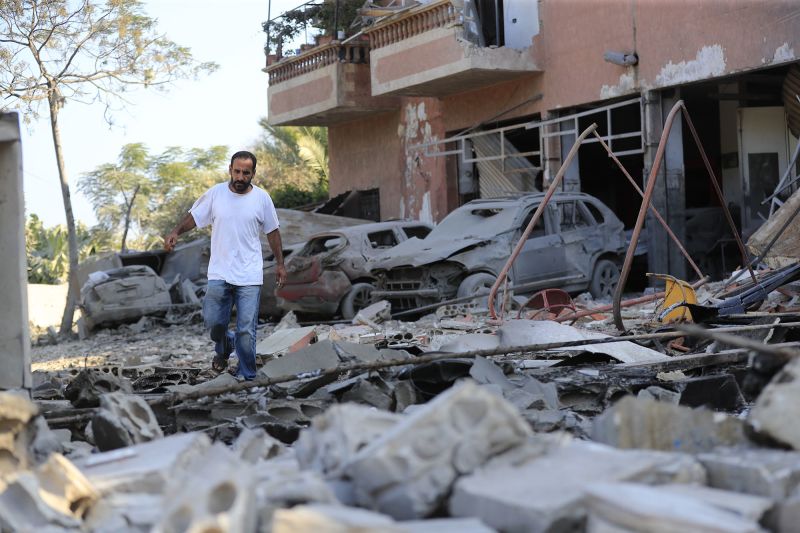Two more rockets fired from Lebanon at Israel land in the sea
The Times of Israel, citing the Israeli military, said two rockets fired from Lebanon at the northern city of Nahariya have fallen into the sea. There were no reports of damage or injuries.
The latest salvo came after Hezbollah claimed five separate attacks on Israeli airbases, including three missile assaults on the Megiddo Airfield and another on the Ramat David Airbase.
Israel claims attacks on Hezbollah launchers
The Israeli military says it bombed the Hezbollah launchers used in the missile attacks aimed at the Megiddo Airfield, located near the city of Afula. The military, writing on X, said it also attacked dozens of Hezbollah “targets” in several areas of southern Lebanon.
Civil defence tackled 176 fires across Lebanon in 24 hours
Lebanon’s civil defence says its crews have tackled 176 fires amid Israeli strikes across the country. It said it responded to blazes in agricultural land in Harf Miziara and Qartaba and in a landfill in Mashha, among others.
The Israeli military said it hit dozens of “Hezbollah targets” in several areas of southern Lebanon overnight.
Flames and smoke rise from an Israeli airstrike on the Mahmoudieh mountain, south Lebanon
Israel says over 50 projectiles fired from Lebanon
The Israeli military says more than 50 projectiles were fired from Lebanon into northern Israel this morning. The sirens sounded between 09:42 (06:42 GMT) and 09:44. “The majority of the projectiles were intercepted,” the army said in a statement.
Approximately five projectiles also targeted the HaAmakim area, in central Israel, at about 09:36.
Hezbollah claims to have attacked Israel’s Ramot Naftali base
Lebanon’s Hezbollah armed group says its fighters have attacked the logistical warehouses of the 146th Division in the Ramot Naftali military base with a missile salvo. The group did not elaborate on the timing and results of the attack.
Earlier today, it said volleys of Hezbollah rockets bombed the Kiryat Shmona settlement in northern Israel.
Israel claims strikes target Hezbollah weapons, infrastructure
The Israeli army says approximately 10 projectiles were launched from Lebanon towards the HaAmakim area in northern Israel at about 10:30am local time (07:30 GMT). The military added in a statement that it launched several strikes in southern Lebanon targeting “launchers, terrorist infrastructure sites and buildings in which weapons were stored”.































































